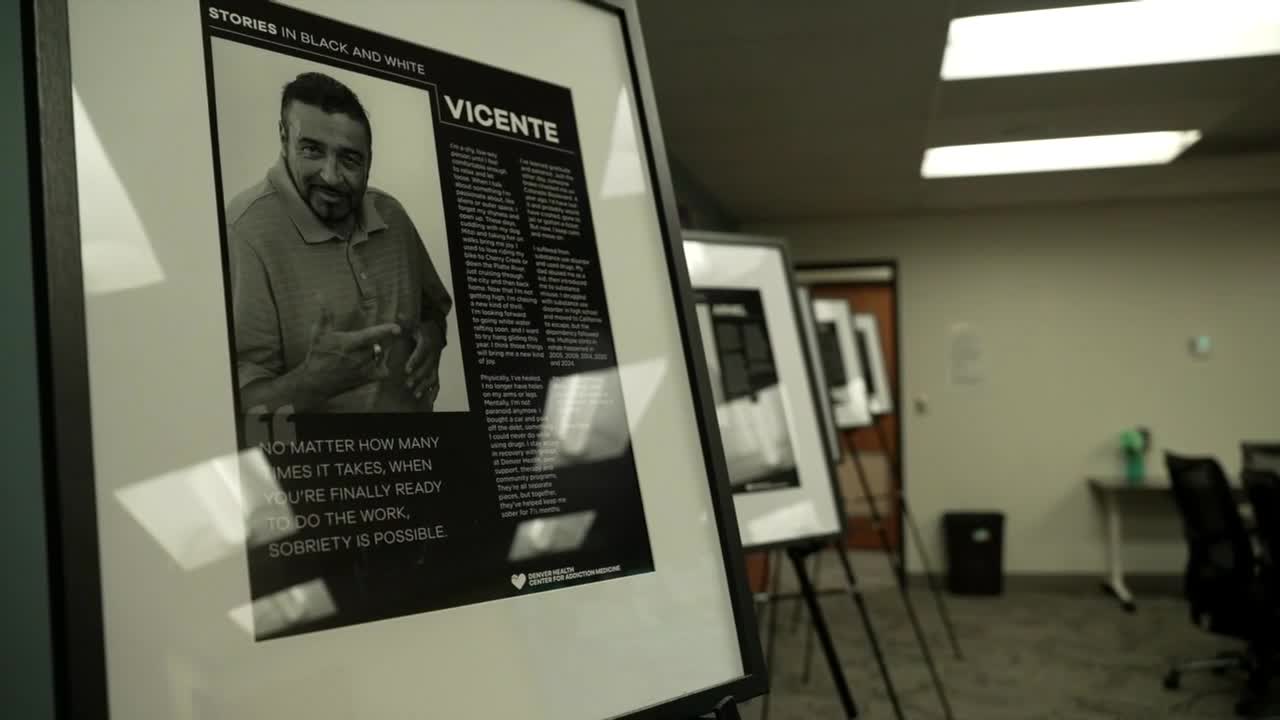DENVER — Denver Health is sharing the stories of patients and support specialists to ease the stigma surrounding fentanyl use and, in turn, reduce overdose deaths.
According to data from the Denver Department of Public Health & Environment (DDPHE), as of July 10, there have been 320 confirmed overdose deaths so far this year. Of those, 213 cases involved fentanyl.
During the same period last year (Jan. 1 through July 10, 2024), there were 275 confirmed overdose deaths in Denver.

"Really, the age range is everything from 9 years old to 90. That is not an exaggeration, we have patients at either end of the spectrum," Sarah Christensen, medical director of outpatient substance use disorders at Denver Health, said about the patients she sees who have been impacted by fentanyl. "They're a variety of backgrounds. No one is immune; no one is protected. Coming from a good family or having money doesn't stop you from experiencing this."
Denver Health's Center for Addiction Medicine helps people navigate recovery. Outside of the building are rows of small purple windmills, recognizing the lives lost to substance abuse.

Christensen said the community, whether they're impacted by substance use disorder or not, can help reduce overdose deaths through awareness and empathy. She recommends that people carry naloxone so they can intervene if they see someone experiencing an overdose.
"I recommend to everybody to have that with you," said Christensen. "Actually, I have it with me in my purse."
Naloxone, also known by the brand name NARCAN, is a medication that can reverse the effects of an opioid overdose and can be given as a nasal spray or an injection. The medication is safe and easy to use, not only by trained professionals but also by bystanders.
Nasal spray naloxone is available at pharmacies or through various vending machines and resource centers across Denver.
"An overdose might mean that someone has taken so much that they are no longer conscious," Chistensen said. "What we really worry about is when they stop breathing."
- Denver Health created a video demonstrating how to administer naloxone. You can watch it in the video player below
If your loved one is experiencing substance use disorder, Christensen said the best way to approach the situation is with compassion.
"Being able to say, 'Whatever's happening, I love you, I'm still going to love you, and I'm here when you're ready and I would love for you to get help,'" she said.
In an effort to reduce the stigma surrounding fentanyl use, Denver Health is highlighting the stories of people impacted by opioids and overdoses through an exhibit titled "Stories in Black and White."
According to Denver Health, "patients, peer support specialists, and advisory members for the Center for Addiction Medicine's Community Advisory Meeting shared these stories in partnership with the CDC Foundation's Overdose Response Strategy Program."

"We hope these stories encourage more dialogue and less stigma about how people from all walks of life can get the support they need when they are ready," Denver Health wrote.
The exhibit will be at Civic Center Park near Broadway and 14th Avenue on Sept. 1 between 9 a.m. and 3 p.m. It will then be showcased at the Denver Central Public Library on Sept. 4 from 10 a.m. to 6 p.m.
You can learn more about the exhibit through this link.






